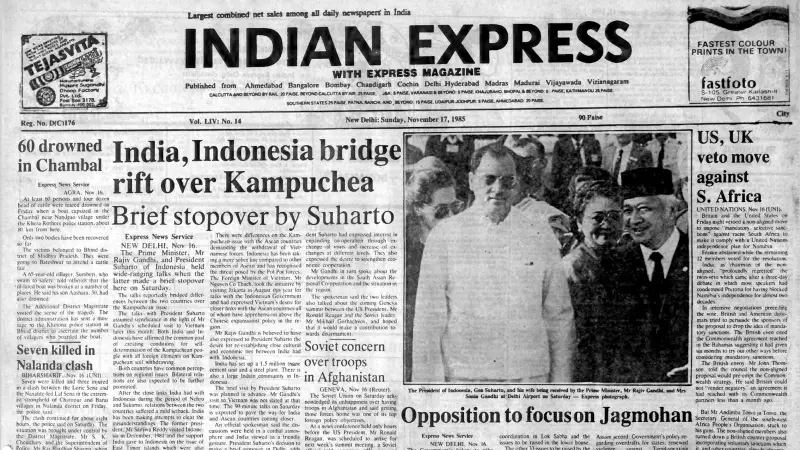
On November 17, 1985, India and Pakistan took significant steps toward strengthening their economic ties through multiple proposals aimed at expanding trade relations between the two neighboring nations.
Historic Trade Discussions
The visiting Pakistan Minister for Finance, Planning and Economic Affairs, Mahbub-ul-Haq, held crucial meetings with Indian leaders where they explored various ideas for mutual cooperation. Both countries agreed to pursue several economic initiatives that could transform their bilateral relationship.
Among the key proposals discussed were the establishment of joint ventures between Indian and Pakistani companies, the resumption of private trade channels, and participation in each other's free trade zones. This marked a significant shift in economic diplomacy between the two nations that have historically experienced tense relations.
Symbolic Joint Ventures
A particularly important agreement emerged from these discussions: both nations committed to establishing at least one joint venture in each country. These ventures would symbolize the new spirit of cooperation by pooling capital, technical expertise, and technological resources from both sides.
The joint ventures were envisioned as more than just business projects - they were designed to become symbols of cooperation between India and Pakistan, demonstrating that economic collaboration could overcome political differences.
International Context
While India pursued closer ties with Pakistan, significant developments were occurring on the global stage. Britain and the United States used their veto power to block a Non-Aligned movement initiative that sought to impose mandatory, selective sanctions against South Africa.
This veto came after a three-day United Nations debate where most speakers condemned Pretoria for blocking Namibia's independence for nearly two decades. France abstained from voting, while the remaining 12 Security Council members supported the resolution. India, serving as chairman of the Non-Aligned movement, expressed profound regret over the twin-veto decision.
Regional Diplomacy Advances
Prime Minister Rajiv Gandhi and Indonesian President Suharto held wide-ranging talks during the latter's brief stopover in New Delhi. These discussions successfully bridged differences between the two countries regarding the Kampuchean issue.
The timing of these talks was particularly significant given Gandhi's scheduled visit to Vietnam later that month. Both India and Indonesia affirmed their shared goal of creating conditions for self-determination of the Kampuchean people and called for the withdrawal of all foreign elements from Kampuchean soil.
UK Political Resignation
In international political developments, a British Minister closely associated with Prime Minister Margaret Thatcher resigned from the government in protest against the Anglo-Irish agreement. Ian Gow, a 48-year-old politician who had been named Treasury's Minister of State just two months earlier, stepped down citing objections to Dublin's new consultative role in Northern Ireland affairs.
In his resignation letter, Gow expressed his firm belief that the policy change would prolong rather than diminish Ulster's agony, marking a significant political protest within the UK government.
The November 17, 1985 edition of The Indian Express captured these multifaceted developments that shaped South Asian diplomacy and international relations during a crucial period of geopolitical realignment.





